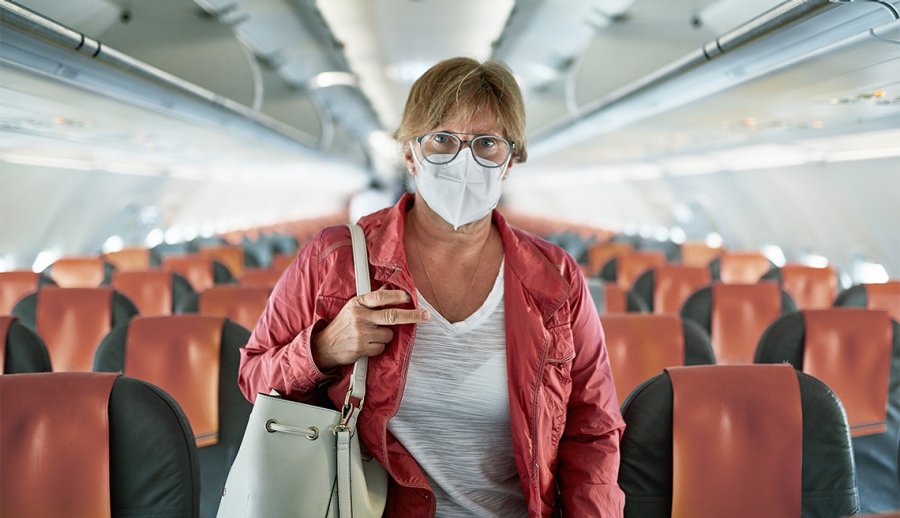
Last week, Harvard researchers asserted that flying on a plane during COVID is actually less risky than your average trip to the grocery store.
This may seem counter-intuitive at first. Seating on airplanes is certainly not socially distanced, and one may initially think that it would be extremely detrimental to overall COVID precautions.
However, the Harvard study cites mask-wearing, ventilation, and filtration countering the proximity of seating on commercial airliners.
“Commercial passenger aircraft are equipped with highly effective ventilation systems that refresh cabin air on average every 2-3 minutes… removing > 99% of particles of the size that cause SARS-CoV-2. Passengers and crewmembers breathe a combination of 50% filtered and 50% fresh outside air,” the study claims. “The highly efficient ventilation systems engineered into modern passenger aircraft effectively protect against disease exposure when airborne by rapid and continuous filtering and exchange of cabin air.”
Face masks also prevent droplets from moving freely around the cabin.

However, the study warns that the most effective way to prevent COVID-19 transmissions in the air is through self-screening. The bottom line? If you or someone you know has been exposed to or tested positive for coronavirus, don’t fly. The study also acknowledges that asymptomatic cases are common, and the extra precautions of sanitation, face masks, and ventilation/filtration on planes reduce the risk exponentially.
This ski season holds lots of uncertainty, and planes will likely be integral to many travelers going to/from ski vacations. This study gives a sense of security that planes may not be as dangerous as originally thought; however, it is still important to take the necessary precautions to protect yourself from contracting COVID-19.
I don’t care about safe anymore. On the contrary, I want to be unsafe again! Yee-haw!
How safe are Trump rallies vs Biden block parties?